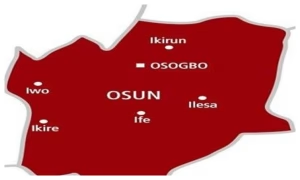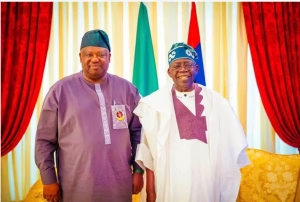In a recent interview, Kenya’s Roads and Transport Cabinet Secretary, Kipchumba Murkomen, sparked a heated debate by expressing his admiration for the leadership style of President Paul Kagame in Rwanda. Murkomen’s comments drew attention to the stark differences in the political and legal systems of the two East African nations.
During the interview, Murkomen characterized Rwanda’s system as efficient and attributed its success to well-formulated policies. He highlighted the streamlined decision-making process in Rwanda, noting that whatever the president says becomes the law, contrasting it with Kenya’s more complex and decentralized approach involving proposals, parliamentary processes, public participation, and judicial review.
The Kenyan official also emphasized the challenges faced in his home country, pointing out that the decentralized system, while providing checks and balances, could be prone to abuse and bureaucratic delays. He specifically mentioned the difficulties in enforcement, citing examples where legal processes and competing bidders have led to significant delays and inflated costs.
These remarks were met with criticism from some quarters, with city lawyer Ahmednasir Abdullahi condemning Murkomen’s comments as a diplomatic misstep. However, Foreign Affairs Principal Secretary Korir Sing’oei offered a different perspective, celebrating the diversity of democratic practices within the East African Community and praising President Kagame’s bold leadership.
In response to the backlash, Murkomen clarified that his intention was not to undermine Kenya but rather to highlight the advantages of a more centralized leadership style in certain contexts. He pointed to other countries with similar leadership models, such as the UAE, Morocco, and Saudi Arabia, where decisive leadership has delivered tangible successes for their people.
Murkomen urged his critics to shift their focus to streamlining Kenya’s legal processes, highlighting the need to address bureaucratic inefficiencies that hinder the country’s development projects. He emphasized the need to prioritize the interests of Kenya, urging his compatriots to champion reforms that would expedite decision-making and minimize costly delays.
The controversy surrounding Murkomen’s comments underscores the intricate dynamics of political systems and leadership styles within the East African region. It has ignited a broader conversation about the trade-offs between centralized decision-making and decentralized processes, as well as the need for efficient governance to drive national development agendas.
As the discourse unfolds, it highlights the complexities of governance and the diversity of approaches across different nations, underscoring the importance of constructive dialogue and shared learning within the East African Community and beyond.




